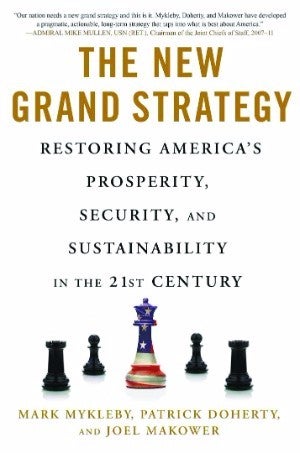LENS Read Faculty Books
Justice Dissected
New Book Examines Roberts Court Decisions

Jonathan Adler, JD, has a long-simmering frustration.
The Johan Verheij Memorial Professor of Law at Case Western Reserve believes too much media coverage about business-related U.S. Supreme Court decisions focuses on the horse race—that is, whether business won or lost—rather than the substantive content of the decisions themselves.
Adler is stepping in to provide analysis he believes is missing. He's edited the newly published book Business and the Roberts Court (Oxford University Press) and joined other legal scholars in writing one of the 10 chapters.
"There started to be a series of stories published about how the court had become particularly pro-business," said Adler, who also is director of the Center for Business Law and Regulation at the School of Law. "The justifications that were given for that conclusion were often simplistic and thin—and problematic if you look at them more closely.
"That's been a pet peeve for a long time," he added.
He believes the court is not driven by an overarching concern for business, but instead makes decisions viewed as "pro-business" based on commitments to legal doctrines that often—but not always—coincide with business interests.
"I hope [the book] helps people get beyond empty labels about the court and helps them understand the judicial doctrines or motivations that are influencing outcomes," Adler said.

The New Grand Strategy: Restoring America's Prosperity, Security, and Sustainability in the 21st Century by Mark Mykleby and Patrick Doherty, co-directors of the Strategic Innovation Lab at the Weatherhead School of Management, and Joel Makower, a senior fellow with the lab and chairman and executive editor of GreenBiz Group Inc. The authors propose a plan to make sustainability a national imperative and guiding principle for everything from urban planning to national security to investments in education and infrastructure. They see their strategy as combining the best from the political left and right to create a progressive economic agenda with a business-led approach.

Gatekeepers: The Emergence of World Literature and the 1960s by William Marling, PhD, professor of English. How does literature cross geographic borders and language barriers to find an audience in other countries? The book focuses on four internationally known authors and literary gatekeepers who played key roles in opening doors to a broader audience. Marling writes that some of the most influential gatekeepers are book critics, who can impact what people read and where, not only with the nature of their reviews but with their choices about whether to review a book at all.

Chihuly On Fire by Henry Adams, PhD, the Ruth Coulter Heede Professor of Art History. Through 177 illustrations and a comprehensive essay, the book explores the work of Dale Chihuly, a world-renowned glassblower. Adams details the stages of Chihuly's decades-long career and the breakthroughs that resulted after a mid-1970s car crash severely injured one of the artist's eyes, forcing him to relearn his craft. What emerged were the asymmetrical glass forms that are now so distinctive and characteristic of Chihuly's style.

Electroconvulsive Therapy in America: The Anatomy of a Medical Controversy (forthcoming, December 2016) by Jonathan Sadowsky, PhD, the Theodore J. Castele Professor in the Department of History. Electroconvulsive Therapy (ECT), more commonly known as shock therapy, has been hailed as a miracle treatment and despised as barbaric. Its use in the mid-1900s on mentally ill patients without their consent only fueled the controversy. Sadowsky examines the history of ECT and delves into the science, personal stories and popular culture that have helped frame our collective understanding—as well as the myths and facts that surround it.





